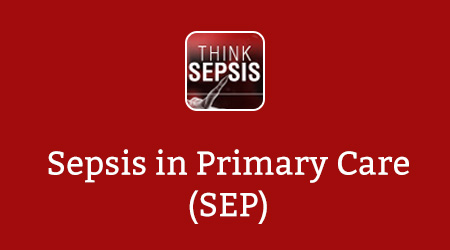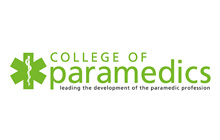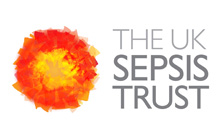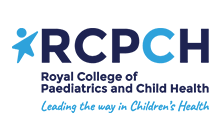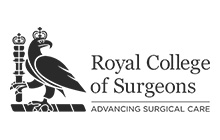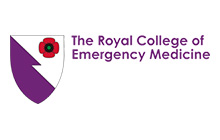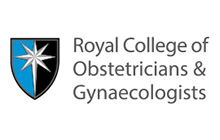About the Sepsis programme
“THINK SEPSIS” is a Health Education England programme aimed at improving the diagnosis and management of those with sepsis.
A number of sepsis cases result in death every year. Some of the deaths are preventable. Prompt recognition of sepsis and rapid intervention will help reduce the number of deaths occurring annually.
The learning materials that are available on this website support the early identification and management of sepsis.
This website has a film and a wide range of learning materials for primary care, secondary care and paediatrics.
For more information on HEE’s work on sepsis please visit our website.

Sepsis educational game
The sepsis educational digital game is an interactive training resource, enabling healthcare staff to spot the signs of sepsis, recognise deterioration and have the confidence to raise concerns. It also raises awareness of the proper treatment of sepsis. A short quiz supports the learning of key facts.
This educational game is an accessible introduction to sepsis for all clinical and non-clinical staff and was produced in collaboration with Focus Games.
THINK SEPSIS: The identification and management of Sepsis in Primary Care
Identifying and managing sepsis in primary care is an important measure in reducing deaths.
70% of sepsis cases develop within primary care.
This sepsis in primary care elearning module addresses the high risk areas for the early identification and management of sepsis.
The first session is aimed at all clinical staff that work in primary care, giving an overview of sepsis for all staff in primary care. The remaining sessions on diagnosing sepsis in adults, children, elderly and complex issues such as maternity and neutropenia are primarily aimed at General Practitioners.
The elearning module, consists of the following five sessions:
- Session 1 – Overview of Sepsis
- Session 2 – Adult Sepsis
- Session 3 – Childhood Sepsis
- Session 4 – Complex Sepsis Issues and Future Development
- Session 5 – Sepsis, Care Homes and the Frail Elderly
The Royal College of General Practitioners (RCGP) has developed a sepsis toolkit to support GPs and healthcare professionals to identify and manage the condition in patients. This toolkit has been designed to help GPs and other healthcare professionals in primary care tackle this challenge with a series of educational materials, up-to-date guidance and training resources. This also includes 10 Top Tips for GPs & Primary Healthcare Clinicians to support a sepsis aware consultation.
GP Reception training - learning toolkit
Reception staff are commonly the first point of contact for people with acute health needs. Receptionists are not expected to make clinical decisions but need to be aware of which symptoms or presentations might suggest the patient is acutely unwell and requires specific actions. This programme has been developed to support receptionists in recognising specific symptoms that may indicate a deteriorating patient, including sepsis, and how they would consider escalating this to a clinician within the service/practice in which they operate.
Sepsis and deterioration – Leadership in Primary Care
The Leadership in Primary Care module is designed for non-clinical and clinical leaders working in primary care and looks at the challenges in leadership roles, to ensure best practice, in identifying and managing acute deterioration and sepsis in Primary Care settings, including general practice.
THINK SEPSIS: The identification and management of Sepsis in adults
Improving Early Detection & Treatment of Sepsis
Approving Quality Alliance (AQuA) in partnership with HEE has developed a series of case studies to support the education of sepsis and deterioration in adults.
These case studies have been written in support of the Second Cross-System Sepsis Board Action Plan theme ‘Celebrating achievements and good practice’. The collection is designed to provide healthcare staff with examples of initiatives to improve the recognition of, and response to, sepsis in a range of settings. These case studies promote a collaborative approach, to improve how quickly staff can recognise and treat people with sepsis.
Each case study includes sections on key learning and reflection points, with a clear statement of what the team learned during the course of the improvement project. Measurement data is also provided to help learners identify improvement opportunities in the treatment of people with sepsis and monitor the impact of interventions.
You can access all the case studies in one document – Patient Pathway & System Solutions on Sepsis – All case studies, or you can access specific areas – Primary Care, Secondary Care, Cross sectional network and Diagnostics. Screening tools and observation charts are provided, along with 3 films to support the training.
Project Transform
An innovative interactive film, Project Transform, which helps all healthcare professionals understand the common factors that may delay or hinder the diagnosis and treatment of sepsis, and therefore spot and treat sepsis earlier is also available. Created by the Royal Surrey County Hospital NHS Foundation Trust in conjunction with The Health Foundation, the UK Sepsis Trust and HEE, the film explores the features that make the diagnosis of sepsis difficult, the use of safety netting and empowering the most junior members of the team. We hope that this film will increase awareness of sepsis and the signs, to help staff diagnose and treat sepsis earlier.
Getting it Right
HEE in its report ‘Getting it right – the current state of sepsis education and training for healthcare staff across England’ ( Exec Summary and Full Report), highlights numerous examples of good practice in relation to sepsis education and training. This report lists a number of resources that would be beneficial to healthcare workers requiring training on sepsis, and the audience they are most applicable to. Examples of learning sessions that healthcare workers in secondary care will find useful to address their training needs can be found below:
- Assessment and Differential Diagnosis of Sepsis (03_17_01) E-learning for Doctors and nurses in secondary care
- Management of the Septic Patient (03_034) E-learning for Doctors in secondary care. Nursing and pharmacy staff in a critical care environment
- Managing Sepsis (08_09) E-learning for Foundation programme doctors.
The UK Sepsis Trust has developed learning resources that supports the training and education of all healthcare professionals on how to diagnose and treat sepsis effectively.
THINK SEPSIS: Sepsis leadership in Acute Care
Sepsis for management and executive staff in acute care
A learning resource for executive, non-executive and management level staff in trusts on sepsis, incorporating antimicrobial resistance and stewardship.
This training programme gives specific context for boards to understand the clinical priorities within healthcare and how boards and clinical leaders can work together to deliver of high quality safe care.
The training consists of an elearning session to be taken independently, to be followed by a facilitated discussion with board members and clinical staff.
It encourages engagement and debate within a trust, to understand locally what appropriate care looks like and what a board should be doing to deal with specific issues within their trust to maintain good standards on the quick recognition, management and treatment of sepsis and in improving standards of antibiotic prescribing.
THINK SEPSIS: The identification and management of Sepsis in Paediatrics
Sepsis can strike the very old and the very young and as a result children, particularly premature babies and infants, can be more susceptible to developing sepsis.
Everyday somewhere in the UK a child dies from sepsis and cases have shown that a significant number are preventable. Children who survive can be left with debilitating consequences.
Early recognition and intervention can improve outcomes for infants and children with conditions that lead to sepsis. These paediatric resources are designed to ensure that all of us who work with sick children on the front line know how to recognise the clinical features of sepsis at the earlier stages and what to do when we see it.
An introductory resource aimed at all healthcare workers
This film explores the key points to consider in diagnosing and managing sepsis and refers to a patient story, presented by the parents of Maude Watkins who died of sepsis aged three.
Maude’s parents Jason (who is an actor in real life) and Clara share their experience of the traumatic loss of their daughter to sepsis, and provide a useful point of reflection for healthcare professionals on how they can ensure the appropriate and prompt recognition and management of sepsis in children. Their story also provides an important insight and reflection on the impact on families from the death of a family member. The film is an entry point to resources that paediatricians and GPs are recommended to look at relating to sepsis in children.
An extended resource aimed at all clinical workers
This case based guide is aimed at supporting clinicians in the recognition and treatment of sepsis in children and involves the stories of three children, their assessment, experiences and treatment.
The learning sessions provide important insights in the recognition and management of sepsis in children. The sessions include the general principles for the safe assessment of a sick child, components of the consultation and assessment, specific factors to be considered in primary and secondary care settings and interpretation of investigations amongst others.
The training materials can be used in face to face teaching sessions or independently as elearning, in bite sized chunks to allow you to go at your own pace. The training is supported by a course summary sheet and a workbook that can contribute to a learner’s continuous professional development (CPD).
We worked with RCPCH to produce paediatric sepsis podcasts, that are designed as educational resources for health and social care professionals.
They explore what sepsis is, the complexities of how to recognise and manage sepsis, what is different about sepsis in children with complex health conditions and offers real-world advice and guidance on how to manage paediatric sepsis.
Sepsis in Paediatrics learning resources
-
Practical resources for clinicians to share with patients and carers (as part of safety-netting) – home setting
Practical resources for clinicians to share with patients and carers (as part of safety-netting) – home setting
NHS Choices:
- Looking after a sick child: aimed at parents (NHS Choices)
- Does your child have a serious illness? Aimed at parents (NHS Choices)
- Patient UK – Symptom Checker
- Health Help Now app (specific localities only) or for the App
- BabyCheck (App)
- Wessex Parent information: aimed at parents with children aged 6 months to 5 years
- UKST Spotting sepsis in children leaflet – Sepsis Assessment and Management (SAM)
- NHS Choices Spotting sepsis in under 5’s
-
Practical resources for clinicians to share with patients and carers (as part of safety-netting) – hospital / secondary care
Practical resources for clinicians to share with patients and carers (as part of safety-netting) – hospital / secondary care
Recognition of early sepsis
-
Practical resources for clinicians to share with patients and carers (as part of safety-netting) – primary care
Recognition of early sepsis – assessment of sick children
- SystemOne templates – Dr David Gould and Cricketfield practice
- KSS Clinical Pathways for Sick Children – elfh or SESCN
- UKST Spotting sepsis in children leaflet – Sepsis Assessment and Management (SAM)
-
Educational resources for healthcare workers – primary care
Educational resources for healthcare workers – primary care
Consultation matters
- Re-ACT Talks: The Effect of Criticism on Parents with Sick Children by Dr Sarah Neill
Recognition of early sepsis – assessment of sick children
- Re-ACT Talks: Deterioration: How to Spot the Sick Child by Dr Ffion Davis
- Spotting Sick Child toolkit
- NICE RAG assessment tool / traffic light system for identifying the risk of serious illness in children
- RCGP elearning feverish child
- UKST Spotting sepsis in children leaflet – Sepsis Assessment and Management (SAM)
- KSS Deanery – elfh elearning resource (clinical pathways for sick children)
- Human Reliability in Primary Care by Dr Dawda
- UKST G.P. Paediatric Sepsis Decision Support Tool
- UKST Prehospital Sepsis Screening and Action Tool
Safety-netting
- NICE – feverish child templates
- NICE algorithm for managing suspected sepsis in children aged under 5 years outside an acute hospital setting
- NICE risk stratification table for under 5 years with suspected sepsis
- NICE combined algorithms and risk stratification tables for those with suspected sepsis (includes for those under 5 years)
- UKST GP Paediatric Sepsis Decision Support Tool
- Re-ACT Talks: The Effect of Criticism on Parents with Sick Children by Dr Sarah Neill
-
Educational resources for healthcare workers – secondary care
Recognition of early sepsis
- Re-ACT Talks: Spotting Sepsis in the Sick Child by Dr Jeremy Tong
- Northern Paediatrics – Northern Paedatric Sepsis
Sepsis pathways
- RCPCH elearning – meningitis and meningococcal septicaemia
- Spotting the Sick Child
- NICE algorithm for managing suspected sepsis in children aged under 5 years in an acute hospital setting
- NICE risk stratification table for under 5 years with suspected sepsis
- NICE combined algorithms and risk stratification tables for those with suspected sepsis (includes for those under 5 years)
- UKST ED/AMU Paediatric Sepsis Screening & Action Tool
- UKST Inpatient Paediatric Sepsis Screening & Action Tool
Sepsis in learning disabilities
The Learning Disabilities Mortality Review (LeDeR) report published in May 2018 highlighted sepsis as a key contributor to premature mortality, with 11% of deaths being recorded as sepsis related. In response NHS England have undertaken work to improve the sharing of information on people with a learning disability, across health and care settings and have published an ‘action from learning’ report that provides examples of the local changes that have been made to services in response to common themes raised through LeDeR reviews across the country.
A number of freely available resources have been developed for the system that includes:
- a sepsis song to raise awareness and improve vigilance to the signs of sepsis amongst people with a learning disability.
- a training film that supports health and care professionals, and carers, to spot the softer signs of deterioration in people with a learning disability.
- a training film aimed at those who care for people with a learning disability who may not be able to communicate or verbalise how they are feeling.
- a film aimed at people with a learning disability who may not be able to communicate or verbalise how they are feeling.
Health Education England project team

Antonio De Gregorio
Programme Coordinator – National Programmes, Antimicrobial Resistance and Sepsis
Mohamed Sadak
Clinical Lead and Programme Manager, Antimicrobial Resistance and Sepsis
Janet Flint
Programme Lead, Public Heath National Programmes
Dr Gary Wares
Deputy Post Graduate Dean, North Central and East London
Dr Neil Ralph
National Programme Lead
elearning team

Clair Guy
Project Manager, HEE elearning for healthcare
Andi Blackmore
Project Manager, HEE elearning for healthcare
Neha Baj
Content Development Lead, HEE elearning for healthcare
Primary Care module author

Simon Stockley
Content Author
Alison Tavaré
Content Author
James Larcombe
Content Author
Paediatrics module author

Dr Nelly Ninis
Consultant Paediatrician, Imperial College Healthcare, NHS Foundation Trust
Dr Tim Fooks
BSc MRCGP DCH, Clinical Lead, Children and Young People, South East Coast Strategic Clinical Networks
Sepsis Leadership in Acute Care author

Dr Matt Inada-Kim
Consultant Acute Physician, & Sepsis Lead, Hampshire Hospitals National Clinical Advisor Sepsis (NHS England) & Deterioration (NHS Improvement)
How to access
Available to all
The Sepsis programme is freely available to access here.
Please note your progress and completion of sessions will not be recorded and you will not be able to generate a record of completion. If you require evidence of learning, please register and then log in to access this programme on the elfh Hub.
If you already have an account with elfh, then you can enrol on to the Sepsis programme by logging in to the elfh Hub, selecting My Account > Enrolment and selecting the programme. You can then access the programme immediately in the My elearning section.
To view the Sepsis programme, select the View button below. If you already have an account with elfh, you will also be able to login and enrol on the programme from the View button.
NHS healthcare staff in England
The Sepsis programme is also available to NHS healthcare staff via the Electronic Staff Record (ESR). Accessing this elearning via ESR means that your completions will transfer with you throughout your NHS career.
Further details are available here.
Not an NHS organisation?
If you are not an NHS health or care organisation and therefore do not qualify for free access elfh Hub, you may be able to access the service by creating an OpenAthens account.
To check whether or not you qualify for free access via OpenAthens, you can view the eligibility criteria and register on the ‘OpenAthens’ portal.
Care home or hospice staff
To register for the Sepsis programme, select the ‘Register’ button above. Select the option ‘I am a care home or hospice worker’ then enter your care home / hospice name or postcode and select it from the options available in the drop down list. Finally enter your care home / hospice registration code and select ‘Register’. You may need to see your employer to get this code.
If your employer does not have a code, then they need to contact the elfh Support Team. The Support Team can either give the employer the registration code or arrange a bulk upload of all staff.
Detailed instructions on how to gain access are available here.
Social care professionals
Access to elfh content is available to all social care professionals in England whose employers are registered with the Skills for Care National Minimum Data Set for Social Care (NMDS-SC). Every employer providing NMDS-SC workforce information to Skills for Care has been given a user registration code for their staff. This code enables you to self-register for access to the Care Certificate programme. Please contact your employer for more details about the registration code.
For information about registering your organisation with the NMDS-SC your employer should access www.nmds-sc-online.org.uk or contact the Skills for Care Support Service on 0845 8730129.
If you have a registration code, you can register by clicking here
Registering large numbers of users
If you are a HR, IT or Practice Manager and would like to register and enrol large numbers of staff within your organisation for access onto the Sepsis programme, please contact elfh directly.
Organisations wishing to use their own LMS
For HR departments wanting to know more about gaining access to courses using an existing Learning Management System please contact elfh directly to express interest.
More information
Please select the following link for more information on how to use the elfh Hub.



